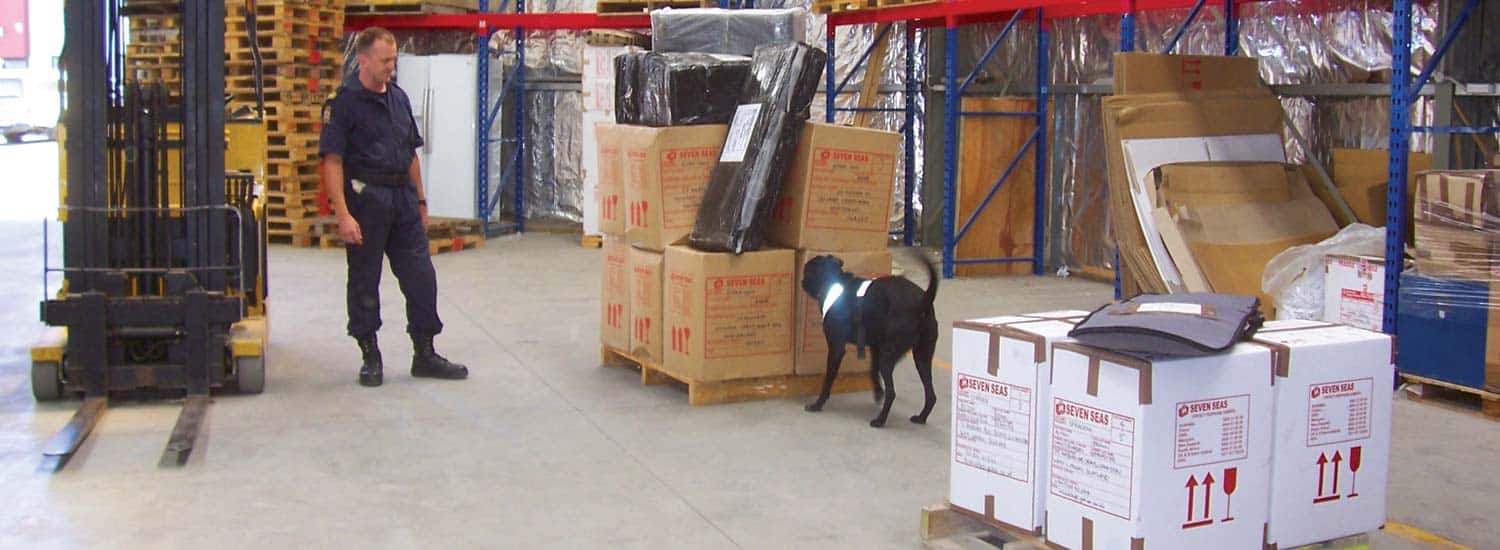Before packing, check this list of items prohibited from entering a particular country or region.
Key takeaways
- A Carnet de Passage is an international customs document that allows the temporary importation of vehicles into foreign countries without the need to pay customs duties or taxes.
- To apply for a Carnet de Passage, visit the Carnet De Passage website and select your vehicle's registration country for the contact details of your local CPD issuing organisation, then submit some basic information such as your name, contact details and your vehicle's country of registration.
- A Carnet de Passage is valid for one year from the issue date.
Importing your vehicle into another country tax-free
If you take a vehicle, such as a car, motorcycle or caravan, abroad for a short time, the last thing you want is a large customs tax bill. By completing a Carnet de Passage en Douane (CPD) and paying a holding deposit, you agree to take your vehicle in and out of the country within a certain period of time. In return, you won't be liable for customs duties or taxes.
What is the meaning of Carnet de Passages?
The meaning of Carnet de Passages directly translated from French to English is "Passage Book," or, more precisely, "Book of Passages". The full term "Carnet de Passages en Douane" translates as "Customs Passage Book", reflecting its function as a multi-use document for passing vehicles through customs.
Some nations have multiple bodies sanctioned to issue CPDs, but typically, one organisation covers an entire country.
What is a Carnet de Passage?
A Carnet de Passage en Douane (CPD), often shortened to Carnet de Passage, is an international customs document. It allows the temporary importation of vehicles into foreign countries without the need to pay customs duties or taxes. Think of it like a passport for your car. A CPD allows holidaymakers, business people and short-term travellers to take motor vehicles across international borders without the financial and administrative burden of temporary imports.
Issued by automobile associations, touring clubs or similar organisations, Carnets are managed by the International Touring Alliance (AIT) and the Federation Internationale de l'Automobile (FIA). Most vehicle owners apply to an organisation based in their home country. Some nations have multiple bodies sanctioned to issue CPDs, but typically, one organisation covers an entire country. Here are some examples of organisations:
- United Kingdom - Classic Automotive Relocation Services (CARS UK)
- United States and Canada - Boomerang carnets
- France - Association Française des Automobilistes
- Germany - Allgemeiner Deutscher Automobil-Club e.V. (ADAC)
- Australia - Australian Automobile Association
- Japan - Japan Automobile Federation
- Argentina - Automovil Club Argentino
- UAE - Automobile and Touring Club for United Arab Emirates
- India - Federation of Indian Automobile Associations
- South Africa - Automobile Association of South Africa
CPDs are usually valid for a year and allow multiple entries and exits within each country. If travelling through multiple countries, ensure your CPD is valid for each one.
You usually pay a holding deposit for your vehicle, which you receive back after you leave the country. You will forfeit your deposit if your CPD expires and you still need to export your vehicle. If a year passes and you are still travelling, you must renew for another year and pay any application administrative fees.

Which countries require a Carnet de Passage?
CPDs are mandatory in many countries. As of 2024, you'll need a Carnet when travelling to the following forty-one nations:
- Argentina
- Australia
- Botswana
- Canada
- Chile
- Democratic Republic of the Congo
- Egypt
- Ethiopia
- Ghana
- India
- Indonesia
- Iran
- Iraq
- Japan
- Jordan
- Kenya
- Kuwait
- Lesotho
- Libya
- Malawi
- Malaysia
- Myanmar
- Namibia
- Nepal
- New Zealand
- Nigeria
- Pakistan
- Paraguay
- Peru
- Senegal
- Singapore
- South Africa
- Sri Lanka
- Sudan
- Tanzania
- Timor-Leste
- Turkey
- Uganda
- Uruguay
- Venezuela
- Zimbabwe
Temporarily importing your vehicle into a country requiring a CPD means agreeing to follow its laws and regulations. Visit the official worldwide CPD website for an up-to-date list of all participating countries and their organising bodies, as import rules and regulations change often.
How many times can you renew a Carnet de Passage?
The number of times you can renew your Carnet de Passage depends on the issuing country, automobile association, or touring club. However, they are typically issued for twelve months and renewable once for an additional year, although this is not guaranteed. Some issuers allow multiple renewals, so you should inquire before your original expiry date if you wish to reapply. Read the conditions of your original CPD thoroughly, as renewal application rules and fees are unique to each issuing country.

What are the benefits of using a Carnet de Passage?
If you're visiting several countries with your vehicle, paying for a Carnet de Passage upfront avoids duties and taxes at each border crossing, saving you time, money and stress. Plus, since they are recognised internationally as customs documents, travellers can avoid lengthy paperwork and checks during customs procedures by presenting their carnet. Having a CPD gives travellers valuable peace of mind, knowing they have the necessary paperwork to cross international borders smoothly.
You must provide a security deposit, which is refundable upon your vehicle's return to your country of origin within an agreed time.

How much is a Carnet de Passage?
The cost of a Carnet de Passage depends on the country and the CPD issuing organisation. You must provide a security deposit, which is refundable upon your vehicle's return to your country of origin within an agreed time. Costs vary by organisation, vehicle value, and your destination country and may include some of the following:
- A security deposit: a cash guarantee to secure the CPD (typically 100% to 400% of the vehicle's value) that's refunded upon proper re-export.
- Insurance: if you cannot afford a deposit, another option is to take out insurance to cover any claims made on your vehicle. Insurance fees roughly cost US$10,000 to US$20,000 (£7,872 to £15,744) and are not offered by all CPD organisations.
- Issuing body fee: varies between US$200 and US$1,500 (£157 and £1,180) to cover administrative costs and is non-refundable.
- Membership fees: some organisations charge membership fees, ranging from US$50 to US$150 (£30 to £118) annually.
How do I apply for a Carnet de Passage?
Visit the Carnet De Passage website and select your vehicle's registration country for the contact details of your local CPD issuing organisation. You must submit some basic information, such as:
- Your name
- Email address
- Phone number
- Make, year and power of your vehicle
- Your vehicle's country of registration
- Method of travel to its destination country
- A list of the countries you plan to visit
Once sent, your CPD organisation will contact you to inform you how to apply for a Carnet de Passage.
How long is a Carnet de Passage valid for?
A Carnet de Passage is valid for one year from the issue date. However, the exact validity period sometimes varies depending on the issuing authority or the specific requirements of each country involved.

What happens if you travel without a Carnet?
Travelling without a Carnet is possible but could lead to increased paperwork, delays, or more severe complications. In some countries, your vehicle may be denied entry at the border, and you might be asked to pay a hefty customs bond or deposit to cover duties and taxes. In extreme cases, you could face fines, legal penalties or have your vehicle impounded.
For a stress-free travel experience, closely check the entry requirements of your destination countries and secure a Carnet where necessary.
What happens to my CPD deposit if my vehicle is lost or stolen?
Your security deposit may be forfeited if your vehicle is lost or stolen while covered by a CPD. However, it depends on the terms and conditions set by your CPD issuing authority and the circumstances surrounding the loss or theft of your vehicle. Inform the relevant local authorities who can help validate your claim as soon as possible.
If the CPD issuer determines that the loss or theft occurred due to circumstances beyond your control, you may be eligible for a refund of a portion or all of your deposit.

How do I import my vehicle into non-CPD countries?
If a country doesn't require a CPD to import your vehicle temporarily, the process depends on the individual nation's regulations. You may wish to hire a customs broker or import specialist to help with the process.
Here are some general steps to take:
- Research import regulations: investigate the import regulations of your vehicle's destination country. Rules on taxes, duties, emissions standards, safety regulations, paperwork, and more can vary widely between nations.
- Gather documents: prepare all necessary documentation for importing your vehicle, such as your registration, proof of ownership, identification and other relevant paperwork.
- Understand customs rules: contact the customs authority in your destination country to inquire about their customs clearance process. You'll likely need to fill out specific forms and pay applicable taxes or duties.
- Check vehicle compliance: some countries have strict safety and emissions standards, and your vehicle may require inspections and modifications to comply.
- Arrange transportation: contact an international shipping company to move your vehicle to the destination country. Costs will vary depending on your chosen shipping method, distance and country-specific fees such as destination charges.
- Register the vehicle: on arrival, you must register your vehicle with the local authorities and obtain licence plates and any other required documentation.











